- Home
- D. H. Lawrence
Women in Love Page 3
Women in Love Read online
Page 3
CHAPTER III.
CLASS-ROOM
A school-day was drawing to a close. In the class-room the last lessonwas in progress, peaceful and still. It was elementary botany. Thedesks were littered with catkins, hazel and willow, which the childrenhad been sketching. But the sky had come overdark, as the end of theafternoon approached: there was scarcely light to draw any more. Ursulastood in front of the class, leading the children by questions tounderstand the structure and the meaning of the catkins.
A heavy, copper-coloured beam of light came in at the west window,gilding the outlines of the children's heads with red gold, and fallingon the wall opposite in a rich, ruddy illumination. Ursula, however,was scarcely conscious of it. She was busy, the end of the day washere, the work went on as a peaceful tide that is at flood, hushed toretire.
This day had gone by like so many more, in an activity that was like atrance. At the end there was a little haste, to finish what was inhand. She was pressing the children with questions, so that they shouldknow all they were to know, by the time the gong went. She stood inshadow in front of the class, with catkins in her hand, and she leanedtowards the children, absorbed in the passion of instruction.
She heard, but did not notice the click of the door. Suddenly shestarted. She saw, in the shaft of ruddy, copper-coloured light nearher, the face of a man. It was gleaming like fire, watching her,waiting for her to be aware. It startled her terribly. She thought shewas going to faint. All her suppressed, subconscious fear sprang intobeing, with anguish.
'Did I startle you?' said Birkin, shaking hands with her. 'I thoughtyou had heard me come in.'
'No,' she faltered, scarcely able to speak. He laughed, saying he wassorry. She wondered why it amused him.
'It is so dark,' he said. 'Shall we have the light?'
And moving aside, he switched on the strong electric lights. Theclass-room was distinct and hard, a strange place after the soft dimmagic that filled it before he came. Birkin turned curiously to look atUrsula. Her eyes were round and wondering, bewildered, her mouthquivered slightly. She looked like one who is suddenly wakened. Therewas a living, tender beauty, like a tender light of dawn shining fromher face. He looked at her with a new pleasure, feeling gay in hisheart, irresponsible.
'You are doing catkins?' he asked, picking up a piece of hazel from ascholar's desk in front of him. 'Are they as far out as this? I hadn'tnoticed them this year.'
He looked absorbedly at the tassel of hazel in his hand.
'The red ones too!' he said, looking at the flickers of crimson thatcame from the female bud.
Then he went in among the desks, to see the scholars' books. Ursulawatched his intent progress. There was a stillness in his motion thathushed the activities of her heart. She seemed to be standing aside inarrested silence, watching him move in another, concentrated world. Hispresence was so quiet, almost like a vacancy in the corporate air.
Suddenly he lifted his face to her, and her heart quickened at theflicker of his voice.
'Give them some crayons, won't you?' he said, 'so that they can makethe gynaecious flowers red, and the androgynous yellow. I'd chalk themin plain, chalk in nothing else, merely the red and the yellow. Outlinescarcely matters in this case. There is just the one fact toemphasise.'
'I haven't any crayons,' said Ursula.
'There will be some somewhere--red and yellow, that's all you want.'
Ursula sent out a boy on a quest.
'It will make the books untidy,' she said to Birkin, flushing deeply.
'Not very,' he said. 'You must mark in these things obviously. It's thefact you want to emphasise, not the subjective impression to record.What's the fact?--red little spiky stigmas of the female flower,dangling yellow male catkin, yellow pollen flying from one to theother. Make a pictorial record of the fact, as a child does whendrawing a face--two eyes, one nose, mouth with teeth--so--' And he drewa figure on the blackboard.
At that moment another vision was seen through the glass panels of thedoor. It was Hermione Roddice. Birkin went and opened to her.
'I saw your car,' she said to him. 'Do you mind my coming to find you?I wanted to see you when you were on duty.'
She looked at him for a long time, intimate and playful, then she gavea short little laugh. And then only she turned to Ursula, who, with allthe class, had been watching the little scene between the lovers.
'How do you do, Miss Brangwen,' sang Hermione, in her low, odd, singingfashion, that sounded almost as if she were poking fun. 'Do you mind mycoming in?'
Her grey, almost sardonic eyes rested all the while on Ursula, as ifsumming her up.
'Oh no,' said Ursula.
'Are you SURE?' repeated Hermione, with complete sang froid, and anodd, half-bullying effrontery.
'Oh no, I like it awfully,' laughed Ursula, a little bit excited andbewildered, because Hermione seemed to be compelling her, coming veryclose to her, as if intimate with her; and yet, how could she beintimate?
This was the answer Hermione wanted. She turned satisfied to Birkin.
'What are you doing?' she sang, in her casual, inquisitive fashion.
'Catkins,' he replied.
'Really!' she said. 'And what do you learn about them?' She spoke allthe while in a mocking, half teasing fashion, as if making game of thewhole business. She picked up a twig of the catkin, piqued by Birkin'sattention to it.
She was a strange figure in the class-room, wearing a large, old cloakof greenish cloth, on which was a raised pattern of dull gold. The highcollar, and the inside of the cloak, was lined with dark fur. Beneathshe had a dress of fine lavender-coloured cloth, trimmed with fur, andher hat was close-fitting, made of fur and of the dull, green-and-goldfigured stuff. She was tall and strange, she looked as if she had comeout of some new, bizarre picture.
'Do you know the little red ovary flowers, that produce the nuts? Haveyou ever noticed them?' he asked her. And he came close and pointedthem out to her, on the sprig she held.
'No,' she replied. 'What are they?'
'Those are the little seed-producing flowers, and the long catkins,they only produce pollen, to fertilise them.'
'Do they, do they!' repeated Hermione, looking closely.
'From those little red bits, the nuts come; if they receive pollen fromthe long danglers.'
'Little red flames, little red flames,' murmured Hermione to herself.And she remained for some moments looking only at the small buds out ofwhich the red flickers of the stigma issued.
'Aren't they beautiful? I think they're so beautiful,' she said, movingclose to Birkin, and pointing to the red filaments with her long, whitefinger.
'Had you never noticed them before?' he asked.
'No, never before,' she replied.
'And now you will always see them,' he said.
'Now I shall always see them,' she repeated. 'Thank you so much forshowing me. I think they're so beautiful--little red flames--'
Her absorption was strange, almost rhapsodic. Both Birkin and Ursulawere suspended. The little red pistillate flowers had some strange,almost mystic-passionate attraction for her.
The lesson was finished, the books were put away, at last the class wasdismissed. And still Hermione sat at the table, with her chin in herhand, her elbow on the table, her long white face pushed up, notattending to anything. Birkin had gone to the window, and was lookingfrom the brilliantly-lighted room on to the grey, colourless outside,where rain was noiselessly falling. Ursula put away her things in thecupboard.
At length Hermione rose and came near to her.
'Your sister has come home?' she said.
'Yes,' said Ursula.
'And does she like being back in Beldover?'
'No,' said Ursula.
'No, I wonder she can bear it. It takes all my strength, to bear theugliness of this district, when I stay here. Won't you come and see me?Won't you come with your sister to stay at Breadalby for a fewdays?--do--'
'Thank you very much,' said Ursula.
> 'Then I will write to you,' said Hermione. 'You think your sister willcome? I should be so glad. I think she is wonderful. I think some ofher work is really wonderful. I have two water-wagtails, carved inwood, and painted--perhaps you have seen it?'
'No,' said Ursula.
'I think it is perfectly wonderful--like a flash of instinct.'
'Her little carvings ARE strange,' said Ursula.
'Perfectly beautiful--full of primitive passion--'
'Isn't it queer that she always likes little things?--she must alwayswork small things, that one can put between one's hands, birds and tinyanimals. She likes to look through the wrong end of the opera glasses,and see the world that way--why is it, do you think?'
Hermione looked down at Ursula with that long, detached scrutinisinggaze that excited the younger woman.
'Yes,' said Hermione at length. 'It is curious. The little things seemto be more subtle to her--'
'But they aren't, are they? A mouse isn't any more subtle than a lion,is it?'
Again Hermione looked down at Ursula with that long scrutiny, as if shewere following some train of thought of her own, and barely attendingto the other's speech.
'I don't know,' she replied.
'Rupert, Rupert,' she sang mildly, calling him to her. He approached insilence.
'Are little things more subtle than big things?' she asked, with theodd grunt of laughter in her voice, as if she were making game of himin the question.
'Dunno,' he said.
'I hate subtleties,' said Ursula.
Hermione looked at her slowly.
'Do you?' she said.
'I always think they are a sign of weakness,' said Ursula, up in arms,as if her prestige were threatened.
Hermione took no notice. Suddenly her face puckered, her brow was knitwith thought, she seemed twisted in troublesome effort for utterance.
'Do you really think, Rupert,' she asked, as if Ursula were notpresent, 'do you really think it is worth while? Do you really thinkthe children are better for being roused to consciousness?'
A dark flash went over his face, a silent fury. He was hollow-cheekedand pale, almost unearthly. And the woman, with her serious,conscience-harrowing question tortured him on the quick.
'They are not roused to consciousness,' he said. 'Consciousness comesto them, willy-nilly.'
'But do you think they are better for having it quickened, stimulated?Isn't it better that they should remain unconscious of the hazel, isn'tit better that they should see as a whole, without all this pulling topieces, all this knowledge?'
'Would you rather, for yourself, know or not know, that the little redflowers are there, putting out for the pollen?' he asked harshly. Hisvoice was brutal, scornful, cruel.
Hermione remained with her face lifted up, abstracted. He hung silentin irritation.
'I don't know,' she replied, balancing mildly. 'I don't know.'
'But knowing is everything to you, it is all your life,' he broke out.She slowly looked at him.
'Is it?' she said.
'To know, that is your all, that is your life--you have only this, thisknowledge,' he cried. 'There is only one tree, there is only one fruit,in your mouth.'
Again she was some time silent.
'Is there?' she said at last, with the same untouched calm. And then ina tone of whimsical inquisitiveness: 'What fruit, Rupert?'
'The eternal apple,' he replied in exasperation, hating his ownmetaphors.
'Yes,' she said. There was a look of exhaustion about her. For somemoments there was silence. Then, pulling herself together with aconvulsed movement, Hermione resumed, in a sing-song, casual voice:
'But leaving me apart, Rupert; do you think the children are better,richer, happier, for all this knowledge; do you really think they are?Or is it better to leave them untouched, spontaneous. Hadn't theybetter be animals, simple animals, crude, violent, ANYTHING, ratherthan this self-consciousness, this incapacity to be spontaneous.'
They thought she had finished. But with a queer rumbling in her throatshe resumed, 'Hadn't they better be anything than grow up crippled,crippled in their souls, crippled in their feelings--so thrown back--soturned back on themselves--incapable--' Hermione clenched her fist likeone in a trance--'of any spontaneous action, always deliberate, alwaysburdened with choice, never carried away.'
Again they thought she had finished. But just as he was going to reply,she resumed her queer rhapsody--'never carried away, out of themselves,always conscious, always self-conscious, always aware of themselves.Isn't ANYTHING better than this? Better be animals, mere animals withno mind at all, than this, this NOTHINGNESS--'
'But do you think it is knowledge that makes us unliving andselfconscious?' he asked irritably.
She opened her eyes and looked at him slowly.
'Yes,' she said. She paused, watching him all the while, her eyesvague. Then she wiped her fingers across her brow, with a vagueweariness. It irritated him bitterly. 'It is the mind,' she said, 'andthat is death.' She raised her eyes slowly to him: 'Isn't the mind--'she said, with the convulsed movement of her body, 'isn't it our death?Doesn't it destroy all our spontaneity, all our instincts? Are not theyoung people growing up today, really dead before they have a chance tolive?'
'Not because they have too much mind, but too little,' he saidbrutally.
'Are you SURE?' she cried. 'It seems to me the reverse. They areoverconscious, burdened to death with consciousness.'
'Imprisoned within a limited, false set of concepts,' he cried.
But she took no notice of this, only went on with her own rhapsodicinterrogation.
'When we have knowledge, don't we lose everything but knowledge?' sheasked pathetically. 'If I know about the flower, don't I lose theflower and have only the knowledge? Aren't we exchanging the substancefor the shadow, aren't we forfeiting life for this dead quality ofknowledge? And what does it mean to me, after all? What does all thisknowing mean to me? It means nothing.'
'You are merely making words,' he said; 'knowledge means everything toyou. Even your animalism, you want it in your head. You don't want toBE an animal, you want to observe your own animal functions, to get amental thrill out of them. It is all purely secondary--and moredecadent than the most hide-bound intellectualism. What is it but theworst and last form of intellectualism, this love of yours for passionand the animal instincts? Passion and the instincts--you want them hardenough, but through your head, in your consciousness. It all takesplace in your head, under that skull of yours. Only you won't beconscious of what ACTUALLY is: you want the lie that will match therest of your furniture.'
Hermione set hard and poisonous against this attack. Ursula stoodcovered with wonder and shame. It frightened her, to see how they hatedeach other.
'It's all that Lady of Shalott business,' he said, in his strongabstract voice. He seemed to be charging her before the unseeing air.'You've got that mirror, your own fixed will, your immortalunderstanding, your own tight conscious world, and there is nothingbeyond it. There, in the mirror, you must have everything. But now youhave come to all your conclusions, you want to go back and be like asavage, without knowledge. You want a life of pure sensation and"passion."'
He quoted the last word satirically against her. She sat convulsed withfury and violation, speechless, like a stricken pythoness of the Greekoracle.
'But your passion is a lie,' he went on violently. 'It isn't passion atall, it is your WILL. It's your bullying will. You want to clutchthings and have them in your power. You want to have things in yourpower. And why? Because you haven't got any real body, any dark sensualbody of life. You have no sensuality. You have only your will and yourconceit of consciousness, and your lust for power, to KNOW.'
He looked at her in mingled hate and contempt, also in pain because shesuffered, and in shame because he knew he tortured her. He had animpulse to kneel and plead for forgiveness. But a bitterer red angerburned up to fury in him. He became unconscious of her, he was only apassionate voice speakin
g.
'Spontaneous!' he cried. 'You and spontaneity! You, the most deliberatething that ever walked or crawled! You'd be verily deliberatelyspontaneous--that's you. Because you want to have everything in yourown volition, your deliberate voluntary consciousness. You want it allin that loathsome little skull of yours, that ought to be cracked likea nut. For you'll be the same till it is cracked, like an insect in itsskin. If one cracked your skull perhaps one might get a spontaneous,passionate woman out of you, with real sensuality. As it is, what youwant is pornography--looking at yourself in mirrors, watching yournaked animal actions in mirrors, so that you can have it all in yourconsciousness, make it all mental.'
There was a sense of violation in the air, as if too much was said, theunforgivable. Yet Ursula was concerned now only with solving her ownproblems, in the light of his words. She was pale and abstracted.
'But do you really WANT sensuality?' she asked, puzzled.
Birkin looked at her, and became intent in his explanation.
'Yes,' he said, 'that and nothing else, at this point. It is afulfilment--the great dark knowledge you can't have in your head--thedark involuntary being. It is death to one's self--but it is the cominginto being of another.'
'But how? How can you have knowledge not in your head?' she asked,quite unable to interpret his phrases.
'In the blood,' he answered; 'when the mind and the known world isdrowned in darkness everything must go--there must be the deluge. Thenyou find yourself a palpable body of darkness, a demon--'
'But why should I be a demon--?' she asked.
'"WOMAN WAILING FOR HER DEMON LOVER"--' he quoted--'why, I don't know.'
Hermione roused herself as from a death--annihilation.
'He is such a DREADFUL satanist, isn't he?' she drawled to Ursula, in aqueer resonant voice, that ended on a shrill little laugh of pureridicule. The two women were jeering at him, jeering him intonothingness. The laugh of the shrill, triumphant female sounded fromHermione, jeering him as if he were a neuter.
'No,' he said. 'You are the real devil who won't let life exist.'
She looked at him with a long, slow look, malevolent, supercilious.
'You know all about it, don't you?' she said, with slow, cold, cunningmockery.
'Enough,' he replied, his face fixing fine and clear like steel. Ahorrible despair, and at the same time a sense of release, liberation,came over Hermione. She turned with a pleasant intimacy to Ursula.
'You are sure you will come to Breadalby?' she said, urging.
'Yes, I should like to very much,' replied Ursula.
Hermione looked down at her, gratified, reflecting, and strangelyabsent, as if possessed, as if not quite there.
'I'm so glad,' she said, pulling herself together. 'Some time in abouta fortnight. Yes? I will write to you here, at the school, shall I?Yes. And you'll be sure to come? Yes. I shall be so glad. Good-bye!Good-bye!'
Hermione held out her hand and looked into the eyes of the other woman.She knew Ursula as an immediate rival, and the knowledge strangelyexhilarated her. Also she was taking leave. It always gave her a senseof strength, advantage, to be departing and leaving the other behind.Moreover she was taking the man with her, if only in hate.
Birkin stood aside, fixed and unreal. But now, when it was his turn tobid good-bye, he began to speak again.
'There's the whole difference in the world,' he said, 'between theactual sensual being, and the vicious mental-deliberate profligacy ourlot goes in for. In our night-time, there's always the electricityswitched on, we watch ourselves, we get it all in the head, really.You've got to lapse out before you can know what sensual reality is,lapse into unknowingness, and give up your volition. You've got to doit. You've got to learn not-to-be, before you can come into being.
'But we have got such a conceit of ourselves--that's where it is. Weare so conceited, and so unproud. We've got no pride, we're allconceit, so conceited in our own papier-mache realised selves. We'drather die than give up our little self-righteous self-opinionatedself-will.'
There was silence in the room. Both women were hostile and resentful.He sounded as if he were addressing a meeting. Hermione merely paid noattention, stood with her shoulders tight in a shrug of dislike.
Ursula was watching him as if furtively, not really aware of what shewas seeing. There was a great physical attractiveness in him--a curioushidden richness, that came through his thinness and his pallor likeanother voice, conveying another knowledge of him. It was in the curvesof his brows and his chin, rich, fine, exquisite curves, the powerfulbeauty of life itself. She could not say what it was. But there was asense of richness and of liberty.
'But we are sensual enough, without making ourselves so, aren't we?'she asked, turning to him with a certain golden laughter flickeringunder her greenish eyes, like a challenge. And immediately the queer,careless, terribly attractive smile came over his eyes and brows,though his mouth did not relax.
'No,' he said, 'we aren't. We're too full of ourselves.'
'Surely it isn't a matter of conceit,' she cried.
'That and nothing else.'
She was frankly puzzled.
'Don't you think that people are most conceited of all about theirsensual powers?' she asked.
'That's why they aren't sensual--only sensuous--which is anothermatter. They're ALWAYS aware of themselves--and they're so conceited,that rather than release themselves, and live in another world, fromanother centre, they'd--'
'You want your tea, don't you,' said Hermione, turning to Ursula with agracious kindliness. 'You've worked all day--'
Birkin stopped short. A spasm of anger and chagrin went over Ursula.His face set. And he bade good-bye, as if he had ceased to notice her.
They were gone. Ursula stood looking at the door for some moments. Thenshe put out the lights. And having done so, she sat down again in herchair, absorbed and lost. And then she began to cry, bitterly, bitterlyweeping: but whether for misery or joy, she never knew.

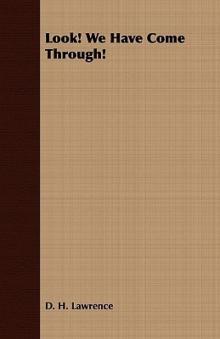 Look! We Have Come Through!
Look! We Have Come Through!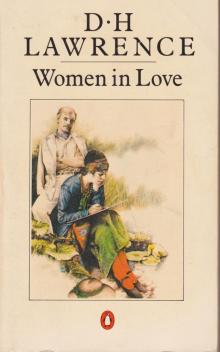 Women in Love
Women in Love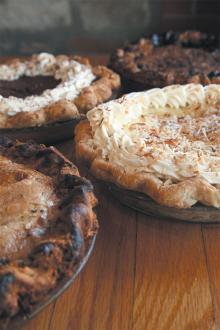 The Ladybird
The Ladybird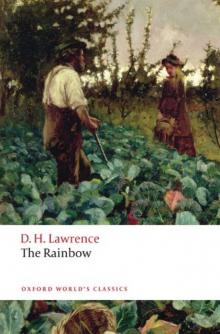 The Rainbow
The Rainbow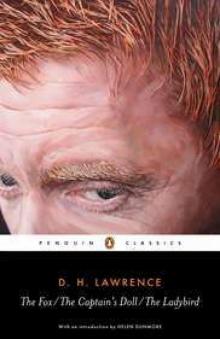 The Captain's Dol
The Captain's Dol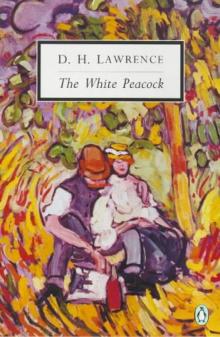 The White Peacock
The White Peacock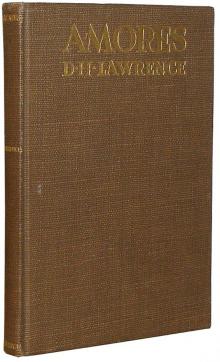 Amores
Amores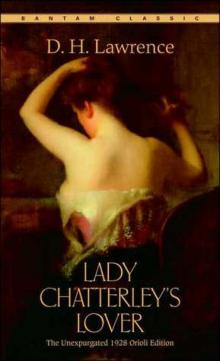 Lady Chatterley's Lover
Lady Chatterley's Lover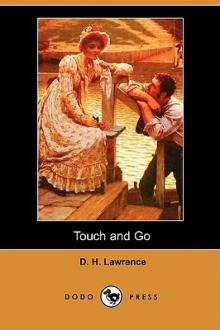 Touch and Go
Touch and Go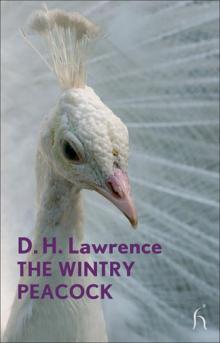 The Wintry Peacock
The Wintry Peacock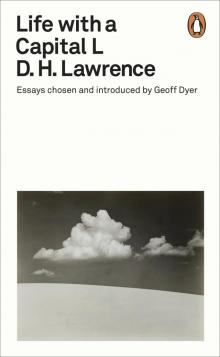 Life with a Capital L
Life with a Capital L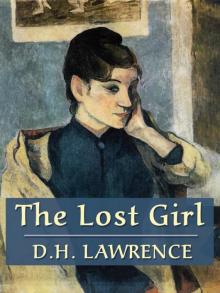 The Lost Girl
The Lost Girl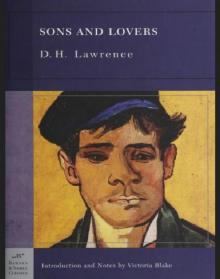 Sons and Lovers
Sons and Lovers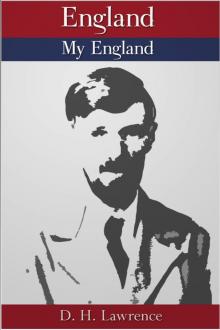 England, My England
England, My England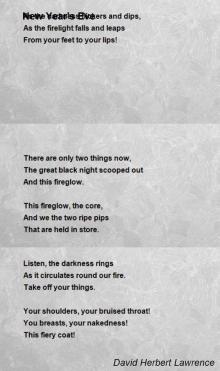 New Poems
New Poems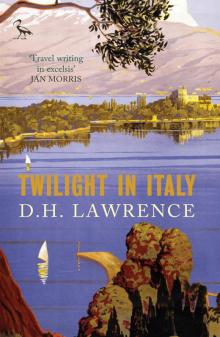 Twilight in Italy
Twilight in Italy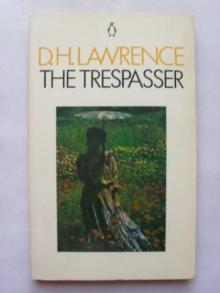 The Trespasser
The Trespasser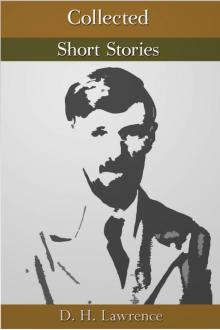 The Collected Short Stories
The Collected Short Stories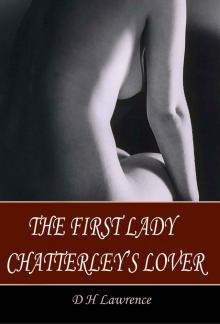 The First Lady Chatterley's Lover
The First Lady Chatterley's Lover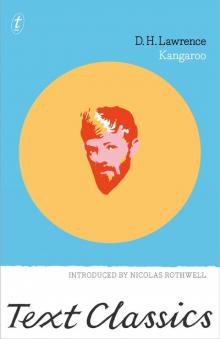 Kangaroo
Kangaroo Bay
Bay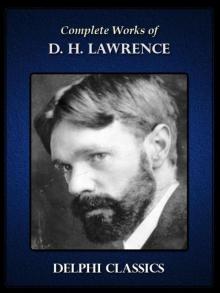 Complete Works of D.H. Lawrence
Complete Works of D.H. Lawrence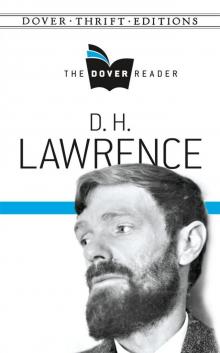 D H Lawrence- The Dover Reader
D H Lawrence- The Dover Reader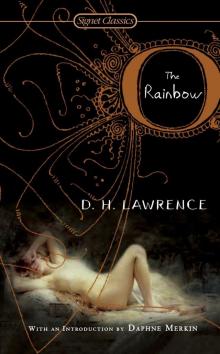 The Rainbow (100th Anniversary ed.)
The Rainbow (100th Anniversary ed.)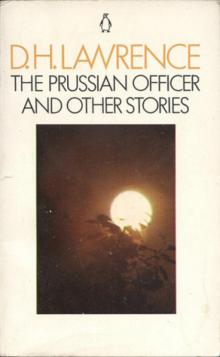 The Prussian Officer
The Prussian Officer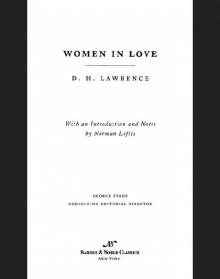 Women in Love (Barnes & Noble Classics Series)
Women in Love (Barnes & Noble Classics Series)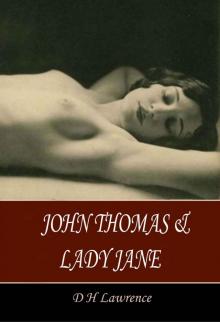 John Thomas and Lady Jane
John Thomas and Lady Jane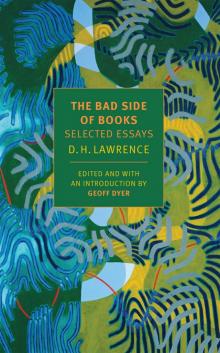 The Bad Side of Books
The Bad Side of Books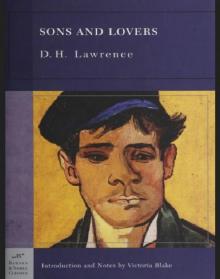 Sons and Lovers (Barnes & Noble Classics Series)
Sons and Lovers (Barnes & Noble Classics Series) Selected Stories
Selected Stories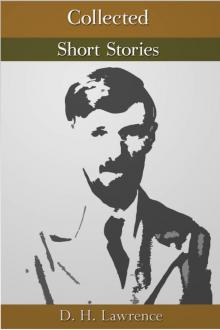 Collected Short Stories
Collected Short Stories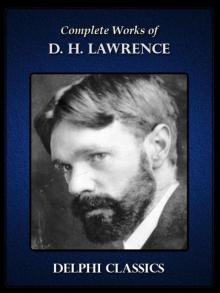 Complete Works of D.H. Lawrence (Illustrated)
Complete Works of D.H. Lawrence (Illustrated)